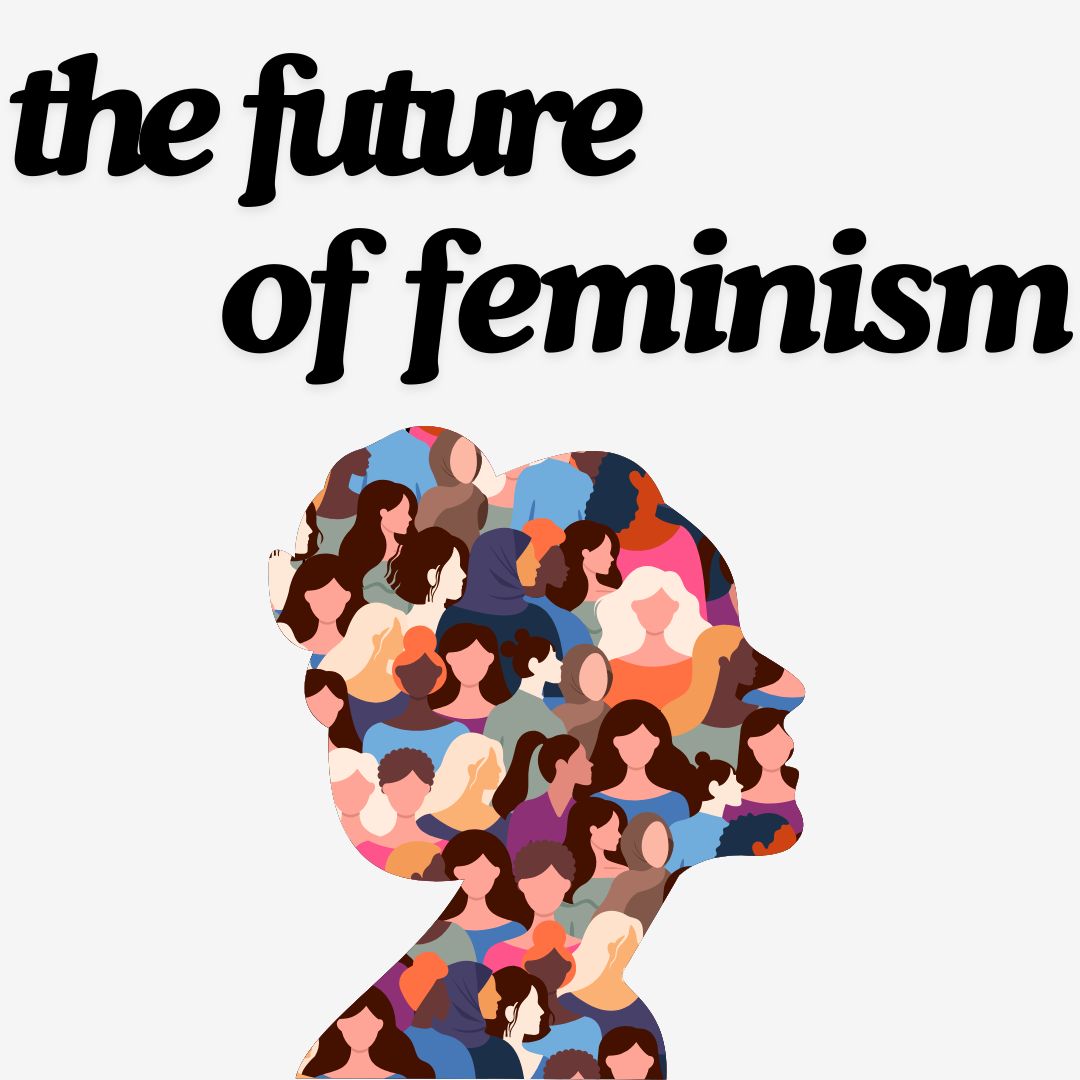Content warning: Contains mentions of violence.
Feminism has sparked decades long backlash as the movement continues to challenge societal norms that do not promote equality based on gender and sex. As the reality of the results following the 2024 presidential election set in, many are trying to figure out what the future of feminism will hold under the second Trump administration.
The idea of feminism is an identity, a movement, a form of resistance and so much more. It can mean different things to different people.
Bobbi Van Gilder is the director of the Women and Gender Studies program at Suffolk University. She said that feminism is an ideology and a movement, it’s a commitment to equality.
“Feminism challenges systems of oppression, like patriarchy, but also recognizes connections between all forms of oppression,” said Van Gilder.
For Camille LeVasseur-Hartgrove, a junior law and international relations double major, feminism means the equality of masculine and feminine qualities and activities that a person can have.
“Being able to express both feminine and masculine qualities while they are seen as no lesser than the other,” they said.
LeVasseur-Hargrove is the inclusion, diversity, equity and accessibility chair of Suffolk’s chapter of Planned Parenthood Generation Action.
Lindsey Salek, a junior political science major and president of PPGA, said that for her, feminism bridges the gap between the societal binary genders to create neutrality.
“Where it’s not that they’re the same or that they’re inherently different, but just that they’re not. And that’s the end of the sentence,” Salek said.
Caitlyn Siler, a sophomore public relations major at Suffolk and public relations chair for PPGA, said that it’s also about opening spaces for women.
“[Where] not only can they become leaders, but they’re encouraged to become leaders,” said Siler.
Van Gilder also pointed out that the idea of feminism is an ever-changing concept that will continue to adapt.
“The sociopolitical landscape has, and always will, influence what feminism means to people in a given moment, and how feminists organize and resist,” Van Gilder said.
The PPGA board expressed their views on the fears that they and many people feel entering into the next era of politics and society.
Siler said that women have a right to be scared about what’s happening.
“The election has opened the door for a lot of hate unspoken,” Siler said. “‘We own your bodies,’ that statement has been echoed around the world, and I don’t think people have understood the effect that has on young, impressionable men that are growing up in Trump’s America. This is Trump’s America. We need to stop acting like it’s not and people need to stop diminishing women that are saying that they are scared because they have a reason to be scared.”
LeVasseur-Hartgrove said that the representation of President-elect Donald Trump allows for rapists and abusers to feel empowered.
On May 9, 2023, Trump was found liable for sexually abusing E. Jean Carroll in 1996. On May 30, 2024, Trump was found guilty on 34 counts of falsifying business records in his hush-money trial against Stormy Daniels.
On Nov. 5, 2024, Trump was named the 47th president of the United States of America to serve his second non-consecutive term.
“All rapists are feeling really seen right now. I’d like to never say that sentence again,” LeVasseur-Hartgrove said. “They feel empowered because if this person who is so publicly like it’s not even a secret, if that can become president, then they’re not going to see that they get consequences.”
Since the election results have been announced, many have noticed an increase in violence against women.
The rhetoric of “your body, my choice” has become a clear message that some conservative men have been promoting.
Salek said that it is getting scarier for women. She said that on TikTok, she’s seen many women preparing to physically defend themselves against men in certain situations.
“I think it’s horrible that we need to be thinking about, like, could you kill a man if you really needed to? Because that’s a horrible thing to have to think about for us, fuck the men, that’s hard for us. Because there’s no reason that I should be considering murder at all,” Salek said.
Siler said that she has experienced this increase in violence while she has gone out since the election.
“It’s been a very long time since I went out with my girlfriends, and men are not taking no for an answer, and it’s becoming an issue,” Siler said. “I had that happen six times in the past two weeks. That’s not okay. That’s way too much. That’s insane. I don’t go to places [where] that should be happening.”
Additionally, reproductive rights continue to be a dividing issue for people and politicians across the country. With no national abortion protection, it has fallen to state governments to create abortion laws. The New York Times reported that 21 states have bans or restrictions on abortion.
Trump has often changed his stance on abortion during his campaign. It is unclear what the future could look like when it comes to abortion access.
Siler is from Texas, one of the most restricted states when it comes to abortion access. She said that over the summer, one of her friends had a pregnancy scare and that the closest place she could go to receive the care she needed was a 10 hour drive.
“I had to sit there and tell her that I would drive for 10 hours to New Mexico, that is the closest safe state,” Siler said. “People very ignorantly say that like ‘oh well you can just leave the state.’ But also know that in Texas we have a law that says if you are pulled over and suspected to be traveling out of the state for an abortion, you can be arrested. It is illegal to travel for an abortion.”
After the overturn of Roe v. Wade in 2022, states that have restricted or banned abortions did not eliminate the practice of abortion.
“We’ve said this over and over and over again in these four walls of PPGA, but banning abortions does not ban abortions, it bans safe abortions,” said Siler. “Abortions still happen. Abortions in Texas are still happening, but women are dying and it’s not getting reported because they were illegal.”
Health care for women, pregnant or not, continues to be disproportionately impacted.
Briar Emeney, senior public relations major and vice president of PPGA, said that all too often, women’s pain is chalked up to “period cramps” and is often not taken seriously.
In 2023, the Mayo Clinic put together resources for women and femme-presenting people looking at ways to make their health care experiences more accessible after studies found that their pain and health was not on the same level as it is with men.
“It’s the fact that even in our healthcare professionals, a field which you are going into to help people out and to care for people, women are not getting the same attention, it’s not on par [with men]. And I think that is so important for me when we talk about feminism,” said Emeney.
Emeney also explained that the barriers in health care extend to mental health and neurodivergence. Emeney didn’t get diagnosed with ADHD until her freshman year of college because ADHD has been primarily studied in young boys and the differences of how this appears in other people are not commonly known.
“Our day-to-day life is so affected by all of these things because we are not given the resources and the time and the care that men are given in society,” Emeney said.
For as long as basic inequality has existed, some form of feminism has as well. Whether it was through the suffrage movement, which led to white women’s legal rights, such as the right to vote, or through the continued efforts of activists to fight the gender pay gaps that still exist, feminism has left its mark throughout history.
However, feminism has not always held space for the intersectionality that exists in many people’s identities. Many early feminist movements excluded the voices of women of color and currently, there is a branch of feminism that excludes transgender and LGBTQ+ voices.
Van Gilder said that this division of choosing who to support, will never, and has never, enriched a society. It only divides it more.
“If we want to push forward to create a better world for everyone, we cannot let antifeminists divide us,” Van Gilder said. “We must continue to show up for one another. The rights and dignity of women, LGBTQIA+ people, immigrants, etcetera are all under threat, so coalition building is especially important. We need to be united rather than divided.”
Recently, there have been different movements highlighting the ever-evolving boundaries of feminism and the fight for equality. Starting in Korea in the late 2010s, the 4B movement has begun to make its way to American culture.
The 4B movement started as a way to combat the growing gender disparities and the increase in violence against women in Korea. The four B’s in the movement stand for: bi-hon (no marriage), bi-yeonae (no dating), bi-chulsan (no birthing) and bi-sex (no sex).
After Trump won both the electoral college and the popular vote, many people on social media attached to the same ideas that the 4B movement provided, as some women’s trust in men is decreasing. The idea of this movement is that women would withhold romantic and sexual relationships with men to protest the growing restrictions and discrimination against women.
Siler said that she knows people, specifically in southern states, who are to some degree participating in the 4B movement. However, she said she’s unsure if it will be able to promote real change.
“I think it’s just going to make men become more creative in their ways of hurting women. I hate saying that,” Siler said.
While it is unclear if this trend will make a social or political difference in American culture, it shows the fear that some women have in men, the government and the future.
Social media provides a platform for people of all beliefs to have opportunities to share their lives and values. One way this has occurred is in the social media trend of “tradwives” or women who share their experiences being housewives and encouraging others to pursue this destiny as well.
Van Gilder points out the romanticization of the “tradwife” movement because the reality of women in the 1950s is that they didn’t have a choice. They were often suppressed to marital rape, financial dependency and other forms of abuse were not uncommon during these times.
“Although I do not personally subscribe to the belief that women should take on a submissive role in families and be fully financially dependent on their husbands, I also believe that women should be able to choose their own path without societal constraints — they have the agency to make their own choices about how they want to live their lives,” Van Gilder said.
Siler said that growing up in a conservative, Christian community, she saw the effects of internalized sexism and how there are many women who believe in the idea that a 1950s housewife is the “right” choice for women.
Siler recalled an example of this with an interim youth pastor she had when she was growing up who announced that she was leaving seemingly without reason.
“We couldn’t understand why she was leaving, and we asked her why, she said, ‘there really needs to be a man in this position,’” said Siler.
While the 4B movement and trend of tradwives are just two examples of social movements, there are many more and others that are sure to come in the future.
Trump and Vice President-elect J.D. Vance have come out with statements throughout their campaign that shows their bias towards women who choose a more traditional housewife lifestyle and have restrictive views when it comes to reproductive rights.
AP reported that 53% of white women voted for Trump and Vance in this past election, showing some level of support for these ideologies among this group.
Trump’s presidency will be accompanied by a Republican majority Senate and House of Representatives as well as a conservative leaning Supreme Court. Feminism has been a constant when it comes to social change and movements and it will continue to be prominent in the coming years.





















